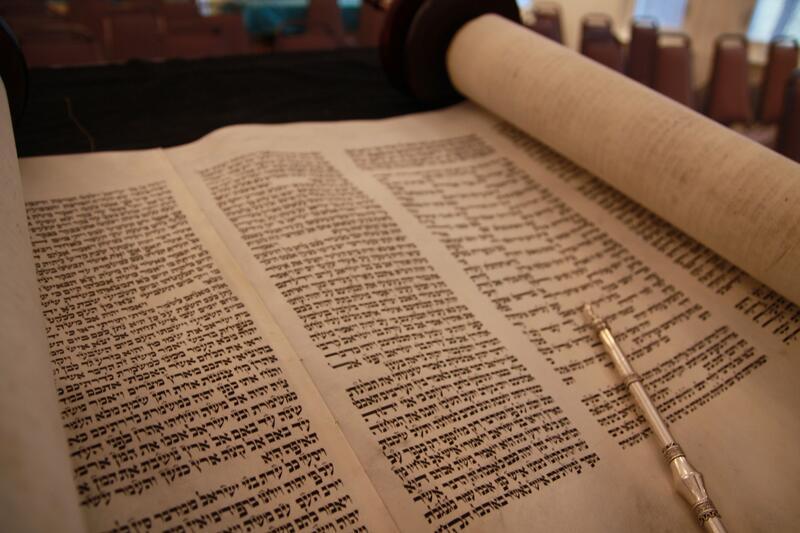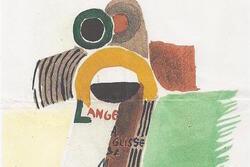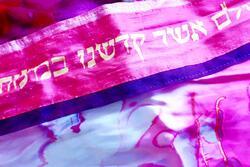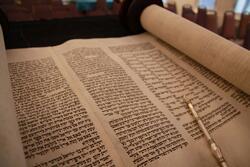A “Boy's Mitzvah”: Discovering the Intersection Between My Feminism and My Judaism Through Torah
A year before my bat mitzvah, an Orthodox friend of mine said to me, “Are you going to read Torah? We think that’s a boy’s mitzvah.”
I hesitated and responded, “Um, I don’t know…”
In the months following this conversation, however, I found that I knew my answer for certain: I was going to leyn as much Torah as possible. On the day of my bat mitzvah, I read the whole Torah portion and the Haftorah, and led two of the three services on Shabbat morning in front of the egalitarian congregation. In my traditional Conservative synagogue, that meant that I led about two hours of the three-hour service. I even spoke about a “masculine” topic in my d’var Torah: justice surrounding laws of war.
I was certain in my decision to take on these mitzvot. After all, Jewish feminists had normalized women reading Torah and leading services in Conservative Judaism before my time. Despite this, I found myself struggling subconsciously.
Although I have always lived in a fairly egalitarian Jewish community, the observance levels of my family members, friends, teachers, and community members fall across a broad spectrum. After the conversation with my friend and other similar interactions, I started to question what it would mean for me to become a Jewish woman via a ceremony many Jews considered to not be in accordance with traditional halacha (Jewish law). After all, my parents stressed the importance of abiding by Jewish tradition in regards to many other aspects of my bat mitzvah celebration; we were only serving kosher food and keeping everything "shomer shabbos-friendly." I even had to limit my party guest list to only include girls—much to my seventh-grade self’s frustration.
Perhaps the reason I decided to read my whole Torah portion was to prove to my more observant peers that I was knowledgeable enough about Judaism. But despite feeling that this could “prove” my Jewishness, I still wondered: Did the fact that I, a newfound Jewish woman, fulfilled the “boy’s mitzvah” mean that I was less of a woman or less Jewish? Did it mean that I was more of a feminist?
After my bat mitzvah, I often felt like I had to choose between “proving” my feminism and “proving” my Judaism (and I still feel this way sometimes): Was I really a Jewish woman if I chose to attend a secular school for girls instead of a Jewish one which ascribed to traditional gender roles? Was I really a feminist if I chose to teach religious school to children on Shabbat morning instead of leading services or counting in a minyan, both privileges for which Jewish feminists fought? Was I really a Jewish woman when I went to an Orthodox family’s house for a meal, and felt uncomfortable if all the women cleared the dishes and all the men waited at the table to be served? Was I really a feminist when I felt appreciative of the traditional Jewish elements and family dynamic present at that very same meal?
During quarantine, I started making homemade challah every week, which is a mitzvah Jewish women are traditionally supposed to perform. When I bake challah, I often find myself asking if I am really a feminist if I enjoy “wasting” time in the kitchen instead of using that time to, say, break a glass ceiling. Even when I was deciding what to write about for this blog post, I felt like I wasn’t Jewish or feminist enough to have something important to say.
I know that feminism isn’t about dictating how women practice religion. So why do I feel like a fake feminist when I practice more traditionally? For centuries, halacha dictated specific gender roles, and religious leadership has been reserved for men for just as long. Even when I broke a stereotype by discussing a “masculine” topic in my d’var Torah for my bat mitzvah, I studied and quoted only the works of male sages. There simply weren’t any female ones to quote.
Yet, there are strong women in the Jewish tradition—like Deborah, a biblical prophet, a judge, and a military general. This precedent of empowered Jewish women helps me feel more represented in traditional Judaism. Perhaps, like Deborah, my Jewish and feminist identities intersect more often than not. After all, isn’t the whole point of feminism for women to have choices rather than prescribed roles, be they traditional or groundbreaking? As a feminist religious school teacher, I can use what I’ve learned about being an empowered woman in Jewish educational settings to uplift young Jewish girls. I can make more of a point to teach Jewish women’s history and to call on girls (who typically get called on less in classroom settings). I can take the time to relax by making challah, and emerge more invigorated and ready to be successful on my own terms. I can appreciate many aspects of observant Judaism, and note areas where I can seek greater equality.
I can carry on the legacy of Deborah and more recent Jewish feminists by believing in the power of my own voice as a Jewish feminist. Further, I can trust the validity of my choices about my observance as they relate to my identities as a Jewish woman and a feminist.
If someone said to me today, “We think reading Torah is a boy’s mitzvah,” I would now know how to respond, surrounded and supported by those Jewish feminists before me: “We think reading Torah can be everyone's mitzvah.”
This piece was written as part of JWA’s Rising Voices Fellowship.







This is beautiful! I love how you tie everything together and approach these questions with such nuance.